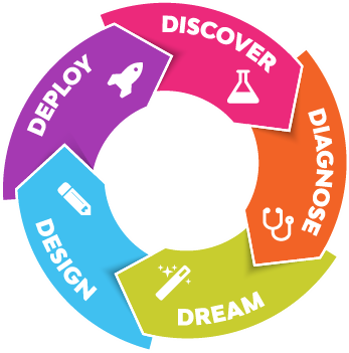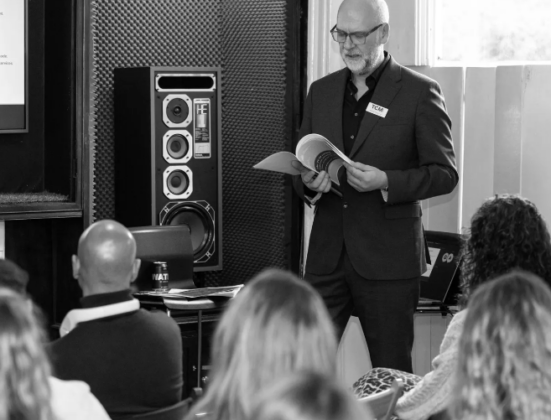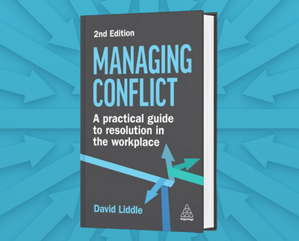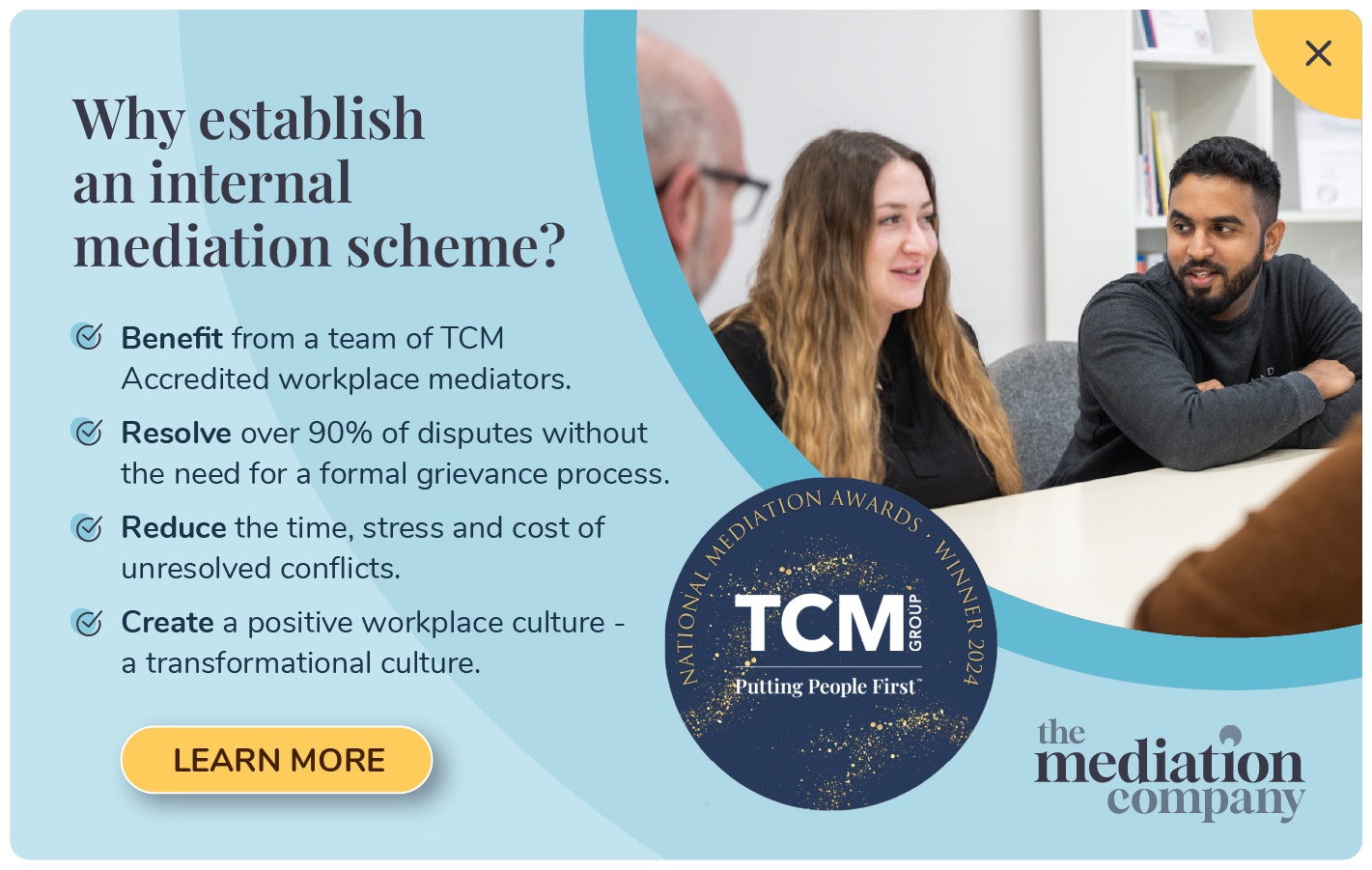
Share article:
Tags:
“The Resolution Framework™ is written for 100% of employees. The Grievance and Disciplinary policy is written for less than 5% of staff.” – Attendee of David’s webinar
In the first of a series of webinars, CEO of The TCM Group and Founder of the Resolution Framework™, David Liddle, enlightened us on the revolutionary approach to organisational structure. The purpose of the session was to allow participants to uncover and understand the business need behind a resolution restructuring.
Interested in attending David’s second webinar in the series? You can book your place here.
Resolution versus Retribution
The Resolution Framework™ calls for a people-centred, values-based, humane stance on handling issues that challenge our organisations. It seeks to resolve employee conflicts, complaints, and concerns by giving dialogue primacy. In essence, it’s about getting people in a room together and providing a safe, conditioned environment for adult-to-adult and psychologically safe conversations. It liberates human resources, putting the “human” back into HR.
By tapping into the human psyche, the framework understands conflict as a vicious cycle of unmet needs, destructive behaviours, and emotional responses. Putting people at the centre of resolution makes logical sense as it addresses these values and related behaviours. Handling these human issues in a holistic and systemic way, rather than implementing generic policies, is more effective to both the individual and the collective business.
Aside from the human impact, there are crushing financial consequences, too. Resources are drained, time and money are wasted. In the UK alone, the annual cost of conflict is £28.5 billion. Of this staggering figure, just 0.8% of this cost is allocated to informal resolution. If we could rid ourselves of the other 99.2% of costs, we would be left without the plethora of resignations, sickness absences, poor productivity, and formal litigations, and rewarded with fast and effective resolution.
Putting the Human Back into Resources
Traditionally, organisations lean on HR departments as a “business partner” of senior leadership, focusing on retributive justice and a black-and-white approach to conflict resolution. These systems are outdated, and, quite frankly, harmful to those involved. Grievance, bullying, and harassment cases are treated as by-the-book procedures, in turn poisoning relationships and toxifying workplaces. People and emotions are discarded in favour of overly simplistic, results-driven litigation, causing irreparable fractures in businesses. It’s predictive rather than productive.
By stark contrast, the Resolution Framework™ turns the dial from retributive punishment to restorative justice. In David’s radical thinking, HR moves to act as an independent and objective function: the “administrative justice department” of a business rather than the crutch of managers. Power is shared amongst employees and managers alike, in turn boosting engagement and wellbeing across the board. Resolution becomes empathetic and collaborative, setting a functional consensus.
From Theory to Practice
Beyond theory, we need to understand how to put this transformative culture into practice.
The framework works as follows:
- It places an emphasis on local/early resolution with support for managers, equipping them with a toolkit.
- A new Resolution Unit will be established to handle complaints and concerns.
- The Framework is triggered with a Request for Resolution from an employee or manager.
- Warnings are replaced with reminders, and hearings are replaced with resolution meetings.
- There will be an enhanced triage of cases and opportunities for early resolution, round table facilitated conversations, restorative conversations, and mediation.
- It underpins the development of a Fair and Just Culture™.
- It is fully compliant with the ACAS code.
There isn’t just a business case for this: there’s an emotional, psychological, and societal case, too. Many organisations have joined the resolution revolution already. For instance, the London Ambulance Service has completely rid itself of formal grievance processes in favour of the TCM approach to resolution. Our collaborative work with TSB Bank has just been nominated for the 2021 Personnel Today Awards. We’re here to support you all the way.
“As we go back to our normal lives, the tides are shifting. The time to act is now: be innovative and creative. Let’s not create fear, but wellbeing amongst our organisations.” – David Liddle, CEO & Founder of The TCM Group
You can watch the full recording of David’s webinar session, below:
Interested in attending David’s second webinar in the series? You can book your place here.













